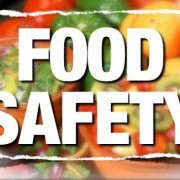Unsafe foods infested with microorganisms or chemicals
Foods may contain harmful bacteria, viruses, parasites or chemicals, and causing more than 200 diseases from diarrhea to cancer. On the occasion of World Health Day, the World Health Organisation (who) has launched the first digit of a broader study on the impact of contaminated foods. The study will be published during the month of October 2015.
 According to who annually over 350,000 people die due to Vasily Stalin in consumption of certain foods contaminated with chemical agents or pathogens. Thus, most of the deaths were caused by Salmonella typhi (52 000 deaths), e. coli (37 000) and norovirus (35 000). Also, more than 40 percent of people suffering from enteric disease caused by contaminated foodstuffs were children aged under 5 years. The most numerous cases have been reported in Africa and Southeast Asia.
According to who annually over 350,000 people die due to Vasily Stalin in consumption of certain foods contaminated with chemical agents or pathogens. Thus, most of the deaths were caused by Salmonella typhi (52 000 deaths), e. coli (37 000) and norovirus (35 000). Also, more than 40 percent of people suffering from enteric disease caused by contaminated foodstuffs were children aged under 5 years. The most numerous cases have been reported in Africa and Southeast Asia.
But not just from poor areas populations of the globe may face this threat. Unsafe foods pose risks, too, and for economies considered powerful, especially in a globalized world. In 2011 the outbreak of e. coli from Germany caused economic damage estimated at over us $1.3 billion.
"The production of food has been industrialised, and trade and their distribution has been globalized. These amendments shall enter the equation more possibilities like food to be contaminated with harmful bacteria, viruses, parasites or chemicals. A local issue in food safety can quickly become an international one. Investigating an outbreak of Community rules is more complicated when a food contains ingredients from many countries, "said who director general Margaret Chan.
However, efforts to prevent such emergencies may be strengthened by developing robust food safety systems and public action for the protection of collective food against chemical or microbial contamination. Consumers also play an important role in the promotion of food safety and hygiene of the hands up to the cooking mode, mainly of meat products.
"Often it takes a crisis of collective conscience concerning food safety. The impact on public health and the savings can be huge, "said Kazuaki Miyagishima, Director of the who Department of food safety.





Leave a Reply
Want to join the discussion?Feel free to contribute!